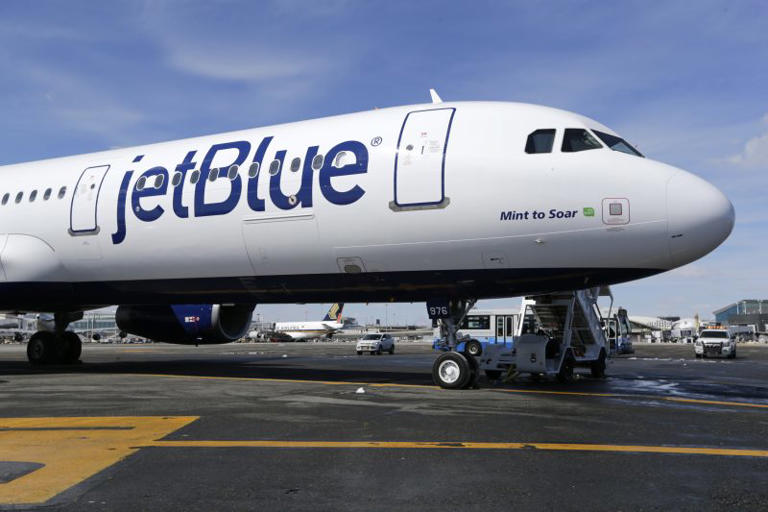JetBlue Airways, a prominent player in the aviation industry, has recently unveiled significant changes to its service routes, marking a strategic shift aimed at consolidating its operations and refocusing on more lucrative markets. This decision comes amidst a backdrop of financial challenges and regulatory hurdles that have posed obstacles to the airline’s growth ambitions in recent years.
Effective June 13, JetBlue will implement a series of service adjustments, including the termination of operations in several cities and a reduction in flights from its Los Angeles hub. Notably, the airline will withdraw from markets deemed unprofitable, such as Kansas City, Missouri; Bogota, Colombia; Quito, Ecuador; and Lima, Peru. This move reflects JetBlue’s strategic imperative to optimize aircraft utilization and reallocate resources to more promising routes.
Dave Jehn, JetBlue’s vice president of network planning, articulated the rationale behind these changes, citing the need to enhance operational efficiency and prioritize markets with stronger revenue potential. By exiting unprofitable routes and consolidating its presence in key markets, JetBlue aims to bolster its financial performance and navigate the challenging operating environment facing the airline industry.
In addition to withdrawing from select cities, JetBlue will also scale back its operations from Los Angeles, discontinuing service to destinations such as Seattle, San Francisco, Las Vegas, and Miami. This decision underscores the airline’s commitment to rationalizing its route network and focusing on markets where it can achieve sustainable profitability.
JetBlue’s strategic realignment comes amid a backdrop of financial losses, with the airline reporting cumulative losses exceeding $2 billion since its last profitable year in 2019. Previous attempts to pursue growth through strategic partnerships and mergers have been stymied by regulatory challenges, including legal opposition from the Biden administration’s Justice Department.
The leadership transition at JetBlue, with former CEO Robin Hayes stepping down and Joanna Geraghty assuming the helm, signals a new chapter in the airline’s evolution. Under Geraghty’s leadership, JetBlue is charting a course towards independent growth initiatives, charting a path forward that prioritizes sustainable expansion and operational excellence.
Furthermore, the involvement of prominent investor Carl Icahn, who has acquired a significant stake in JetBlue and secured representation on the airline’s board, underscores the heightened investor scrutiny and expectations facing the company. As JetBlue navigates this period of transition and transformation, it faces operational challenges, with performance metrics such as canceled flights and on-time arrivals lagging behind industry benchmarks.
Nevertheless, JetBlue remains committed to overcoming these challenges and positioning itself for long-term success. By implementing strategic adjustments to its route network and focusing on enhancing operational efficiency, the airline aims to emerge stronger and more resilient in a rapidly evolving aviation landscape.
